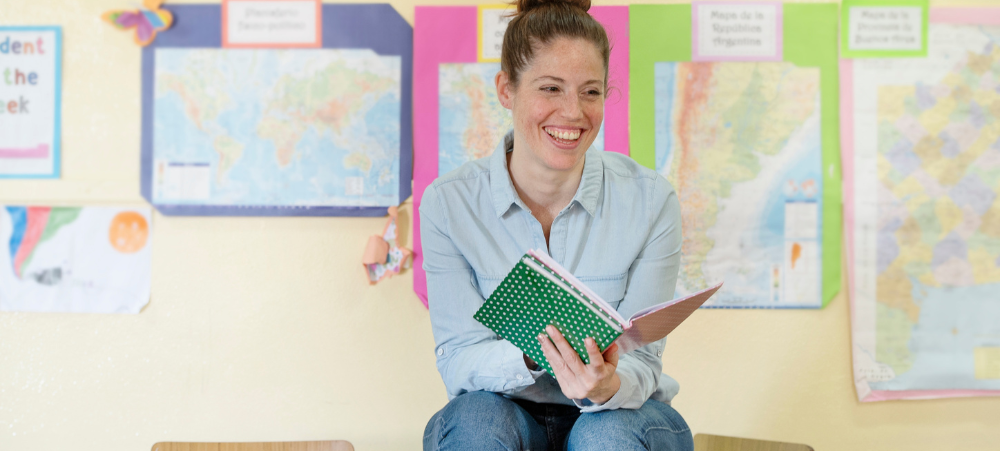“The state of early learning and literacy in South Africa presents a profound challenge that requires immediate and comprehensive action. A staggering 81% of Grade 4 learners cannot read for meaning in any of South Africa’s 11 official languages*. This statistic highlights a literacy crisis and signals broader systemic issues within the educational framework that must be addressed to safeguard the future of the nation’s youth.
Understanding the Barriers to Early Learning
“The root causes of this literacy crisis are diverse and complex. In South Africa, many children, especially from less privileged backgrounds, are denied access to quality early childhood development programs. This lack of access is a primary barrier to forming the foundational literacy skills necessary for future academic success.
“The challenges extend beyond access. The quality of education, particularly in early learning, is hampered by several factors:
- Inadequate Teacher Training: Many teachers lack the necessary training to effectively deliver literacy education, especially in environments with significant language diversity.
- Socioeconomic Disadvantages: Economic hardships significantly affect children’s educational readiness and access to educational materials at home.
- Language Diversity: With 11 official languages, South Africa’s linguistic landscape presents unique challenges in teaching and learning, particularly when the language of instruction differs from the children’s home languages.
- Parental Involvement: The engagement of parents in early learning processes is often limited, which is crucial for reinforcing the skills learned in classrooms.
“There is a need for systemic reform. To address these challenges, a concerted effort must be made to improve the quality of ECD facilities, enhance teacher training, and increase parental involvement. We need to ensure that every child can benefit from inclusive and effective early learning opportunities.
The Importance of Multidisciplinary Early Learning
“The importance of integrating various disciplines into early learning cannot be overstated. By exposing children to a range of subjects from an early age, we not only foster a love of learning but also equip them with critical thinking, problem-solving, and communication skills. These skills are essential for literacy and overall academic success.
” This multidisciplinary approach is pivotal for addressing the literacy crisis in South Africa. It helps children navigate the complexities of language and literacy from a young age, setting a solid foundation for their educational journey.
The Transformative Power of Play
“Play is not merely a leisure activity; it is a critical educational tool that impacts a child’s cognitive, physical, social, and emotional well-being. Through play, children engage with their environment and learn crucial life skills that prepare them for future challenges in study, work, and personal relationships. Play integrates children’s natural curiosity with structured learning, thereby creating a dynamic environment that fosters the development of crucial cognitive and social skills.
Dibber’s Role and Recommendations
“Dibber International Preschools plays a vital role in implementing strategies that address these systemic issues. We are committed to integrating innovative teaching methods and technologies to enhance learning outcomes. Our initiatives include community-based programs, teacher training workshops, and the incorporation of digital tools that facilitate interactive learning experiences.
“To combat the literacy crisis effectively, Assis advocates for several policy recommendations:
- Increase Investment in Early Childhood Education: Prioritizing funding for ECD programs is crucial for improving accessibility and quality.
- Enhance Teacher Training: Providing ongoing professional development to equip teachers with the skills needed to address the challenges of multilingual classrooms.
- Foster Parental and Community Engagement: Encouraging active involvement from parents and local communities in educational processes to support children’s learning outside of the classroom.
“The challenge of improving literacy rates among young learners in South Africa is formidable but not insurmountable. With strategic investments in early childhood development, comprehensive training for educators, and robust community engagement, significant progress can be made. Our children’s ability to read and comprehend is the cornerstone of their future success. We must all work together to transform our educational system and ensure that every child has the opportunity to thrive. Through collective efforts and innovative solutions, we can pave the way for a brighter educational future for South Africa’s next generation.”
*Progress in International Reading Literacy Study (2021 PIRLS)
- Five Ways to Encourage Independence and Confidence in Children with Special Needs - December 9, 2025
- Ten Beautiful Gifts to Give Your Child This Christmas - December 5, 2025
- Reflecting on Parenting Goals: Seven Meaningful Ways to Reset Before the Holiday Season - November 25, 2025






1 thought on “Enhancing Early Childhood Development in South Africa: A Critical Analysis and Call to Action”
Need help with best feeding position with big breast.